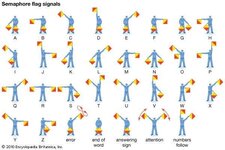I'm currently using a Yaesu VX-7R and am pretty happy with it. I was pretty happy with my old Icom IC-T7H, though, before it went to a watery grave. The extra bands on the 7R are nice to have, even if I don't use them much.
Yea Yaesu makes great equipment.
They make my favorite marine radio as well the Standard Horizon.
If you are anywhere near water, a good marine VHF is also good to have.












